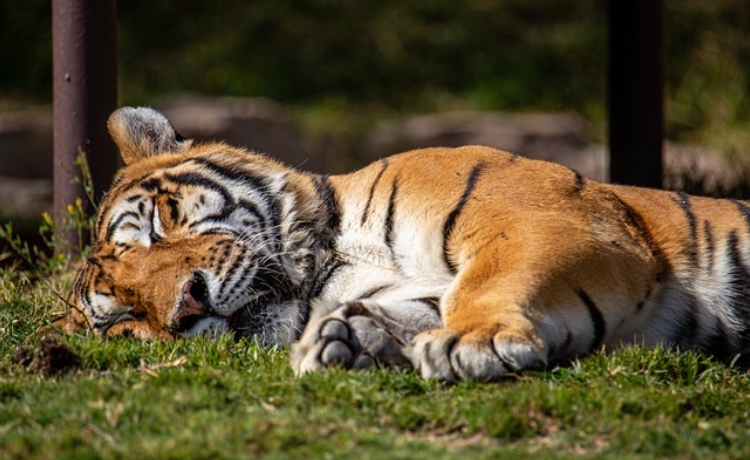
In 2023, India witnessed a significant surge in wildlife losses
Death toll for tigers at 202, marking highest increase in a decade
Leopard population also faced threat, with 544 reported deaths
In 2023, India witnessed a significant surge in wildlife losses, as the death toll for tigers reached 202, marking the highest increase in a decade. This data, extracted from the All-India Tiger Estimation (AITE) 2022, reveals that India, home to a total of 3,682 big cats, experienced a noteworthy spike in tiger mortalities from January 1 to December 24.
Among the states, Maharashtra, located in the western part of the country, surpassed the fifty-deaths mark for the first time, contributing 52 tiger fatalities. Following closely, the central state of Madhya Pradesh reported the second-highest number of deaths, totaling 47. Notably, approximately half of Maharashtra’s tiger deaths occurred in Chandrapur and Gadchiroli districts.
Comparing the data to previous years, the figures indicate a steady increase: 96 deaths in 2019, 106 in 2020, 127 in 2021, and 121 in 2022, escalating to 202 in 2023. Out of the total tiger deaths, 147 were attributed to natural causes, while 55 resulted from poaching and the seizure of body parts, as reported by the Wildlife Protection Society of India (WPSI), a wildlife conservation organization monitoring tiger and leopard fatalities.
Simultaneously, the leopard population faced a parallel threat, with 544 reported deaths in the same period. Among these, 152 leopards fell victim to poaching. Despite these concerning statistics, experts suggest that there is no immediate cause for alarm as long as the overall tiger population continues to show signs of growth.

In 2023, India witnessed a significant surge in wildlife losses
Death toll for tigers at 202, marking highest increase in a decade
Leopard population also faced threat, with 544 reported deaths
In 2023, India witnessed a significant surge in wildlife losses, as the death toll for tigers reached 202, marking the highest increase in a decade. This data, extracted from the All-India Tiger Estimation (AITE) 2022, reveals that India, home to a total of 3,682 big cats, experienced a noteworthy spike in tiger mortalities from January 1 to December 24.
Among the states, Maharashtra, located in the western part of the country, surpassed the fifty-deaths mark for the first time, contributing 52 tiger fatalities. Following closely, the central state of Madhya Pradesh reported the second-highest number of deaths, totaling 47. Notably, approximately half of Maharashtra’s tiger deaths occurred in Chandrapur and Gadchiroli districts.
Comparing the data to previous years, the figures indicate a steady increase: 96 deaths in 2019, 106 in 2020, 127 in 2021, and 121 in 2022, escalating to 202 in 2023. Out of the total tiger deaths, 147 were attributed to natural causes, while 55 resulted from poaching and the seizure of body parts, as reported by the Wildlife Protection Society of India (WPSI), a wildlife conservation organization monitoring tiger and leopard fatalities.
Simultaneously, the leopard population faced a parallel threat, with 544 reported deaths in the same period. Among these, 152 leopards fell victim to poaching. Despite these concerning statistics, experts suggest that there is no immediate cause for alarm as long as the overall tiger population continues to show signs of growth.
